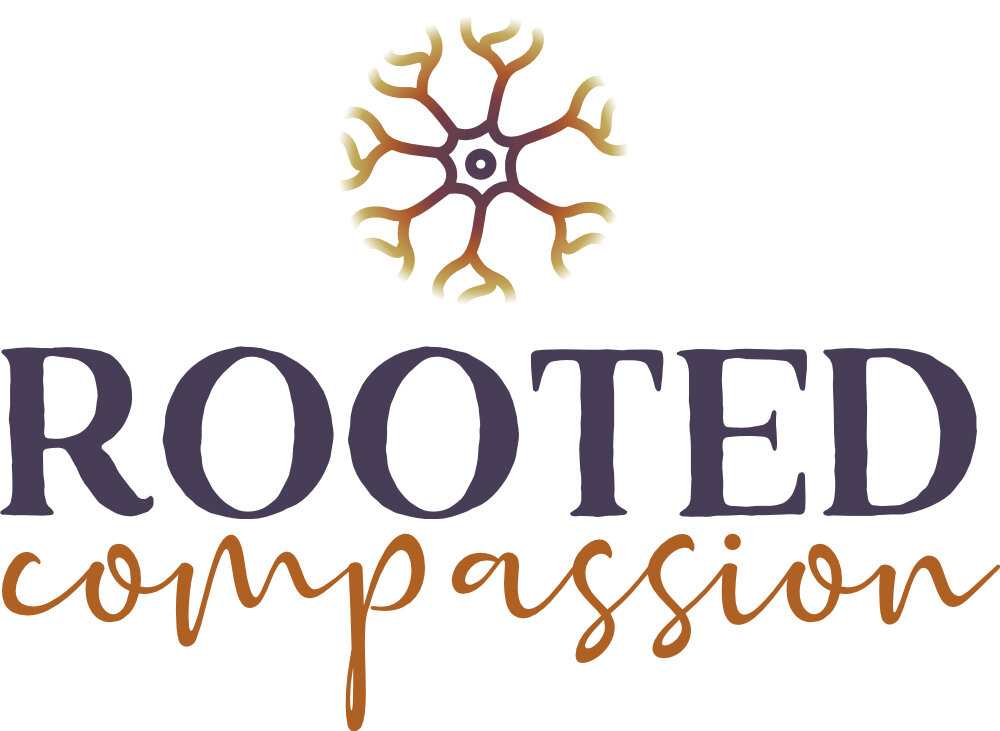Cincinnati Therapist Explores How Different Perspectives Influence Social Interaction and Mood
Entering my kitchen in-between Telehealth sessions to grab a drink of water, I noticed my husband slicing a sweet potato. I glanced at it across the island and said, “oh, that's so cute...it looks like a turtle!” He stopped slicing and looked down at the sweet potato on the cutting board, from the opposite side of the island where I was standing. “No,” he said, “it looks like a fish!” Hmm...feeling curious, I went 'round to his side and viewed the orange root veggie. Wow, my turtle turned into a fish when seen from his vantage point! I needed to head back to my office straightaway for my next client, but later reflected more on this experience of perspective taking.
Perspective can be defined as a mental view, an outlook, attitude, or point of view.
As the sweet potato story illustrates in a simple, benign way, we humans can have differing perspectives about the same thing, and each could be true. In this case, if either my husband or I had refused to be flexible and view that cute “turtle/fish” from another perspective, we could have gotten into an argument and moved from the Socially Connected (ventral vagal) nervous system state we were in, to one of Fight/Flight, over a little, silly thing.
According to ACT (Acceptance and Commitment Therapy), among the 6 core processes of ACT, “perspective taking lies at the heart of conflict resolution, compassion, social justice, and authentic relationships” (Hill & Sorenson, 2021, p. 130). In ACT, perspective taking is also referred to as “self as context” and can be problematic “when the individual's self-conceptualizations function as barriers to effective action” (May, 2019, PESI Training).
When we take a step back and mindfully observe the narrative our mind is telling us, we then can create more opportunities for connection and psychological flexibility with compassion, the main tenet of ACT.
Hill and Sorenson (2021) state numerous research studies show perspective taking can be helpful not only if you are struggling with psychological distress, such as depression or anxiety, but also if you want to create more satisfying relationship interactions, improve habits, or learn to cope more effectively with pain or chronic health concerns.
I recall a time many years ago when I wished I had been more aware of perspective-taking's benefits, as well as Polyvagal Theory informed awareness of my nervous system.
Having been called back for a second mammogram because something “suspicious” was seen on the first, I sat in the waiting room and became increasingly anxious. My heart started beating faster, I felt like crying, and my leg started trembling/shaking nervously. In those moments of waiting, I began believing my thoughts which said, “You've got breast cancer...you're gonna' die!” (I had two close blood-relatives who had breast cancer). The story my brain and mind had created to make sense of my experience had taken over.
At that time, my nervous system was in a state of Sympathetic Mobilization (think Fight-Flight-Flee) and my perspective was creating unnecessary suffering.
Relief and gratitude followed when I learned after the second test that all was well and I needed no follow up.
When we are seeking to evaluate our perspective, we can start by increasing awareness through noticing, mindfully observing, and describing our experience. Creating some space and asking the following questions may help:
What am I feeling in my body, any sensations, tension, tingling, or...?
What are my thoughts, what am I thinking right now?
What emotions am I experiencing, feeling?
What am I doing, what is my behavior?
After we have taken time to notice and pay attention to our experience, perhaps the next question is:
What do I need now in order to live according to my values?
By bringing nurture and compassion to our own needs, we increase our capacity to connect in reciprocal relationships and contribute to our world in meaningful ways. The more we practice perspective taking the more comfortable it will become. And with psychological flexibility, we build resilience. We may even create freedom to see both the fish and the turtles in life!
References:
Hill, D. & Sorenson, D. (2021). ACT Daily Journal. New Harbinger Publications, Oakland, CA.
May, M. (2019). ACT Proficiency Course. WWW.PESI.COM
Photo Credits: Brenda Puckett
Brenda is a Licensed Professional Counselor who would love to join you in your growth process to address the challenges you or a loved one may be experiencing and to help you find the ways you want to move forward. She offers you the respect and acceptance you deserve, sharing her warmth and life experience, without judgment.
The Rooted Compassion team is made up of a group of counselors who have a variety of specialties in order to best serve our clients. We recognize that every person has his/her own personal and unique life experiences and that one modality will not work for every client. Listed below is a summary of our counselors’ specialties at Rooted Compassion:
Emotional Freedom Techniques
Grief Counseling
Somatic Focused Counseling
EMDR
Cognitive Behavioral Therapy
Dialectical Behavior Therapy
Mindfulness-Based Practices
Trauma Responsive Care Techniques
Acceptance and Commitment Therapy
Drama Therapy/Expressive Arts
If you are interested in learning more about what Rooted Compassion is all about, please contact us today, look through our website, or find us on Instagram and Facebook.
Rooted Compassion Counseling is Ohio’s leading practice for trauma therapy through the lens of the nervous system. Our focus is to walk alongside clients as they heal from depression, anxiety, trauma, grief and/or loss. If you or someone you know are seeking to explore and build an inner sense of calm and safety, please contact us today. We would love to help you to find a counselor and counseling techniques that will guide you on your mental health journey to healing.



